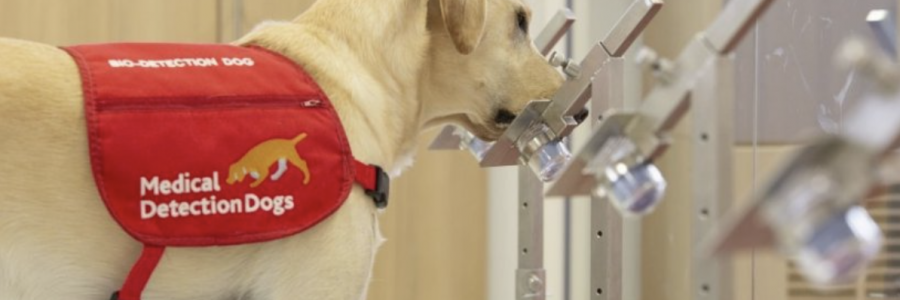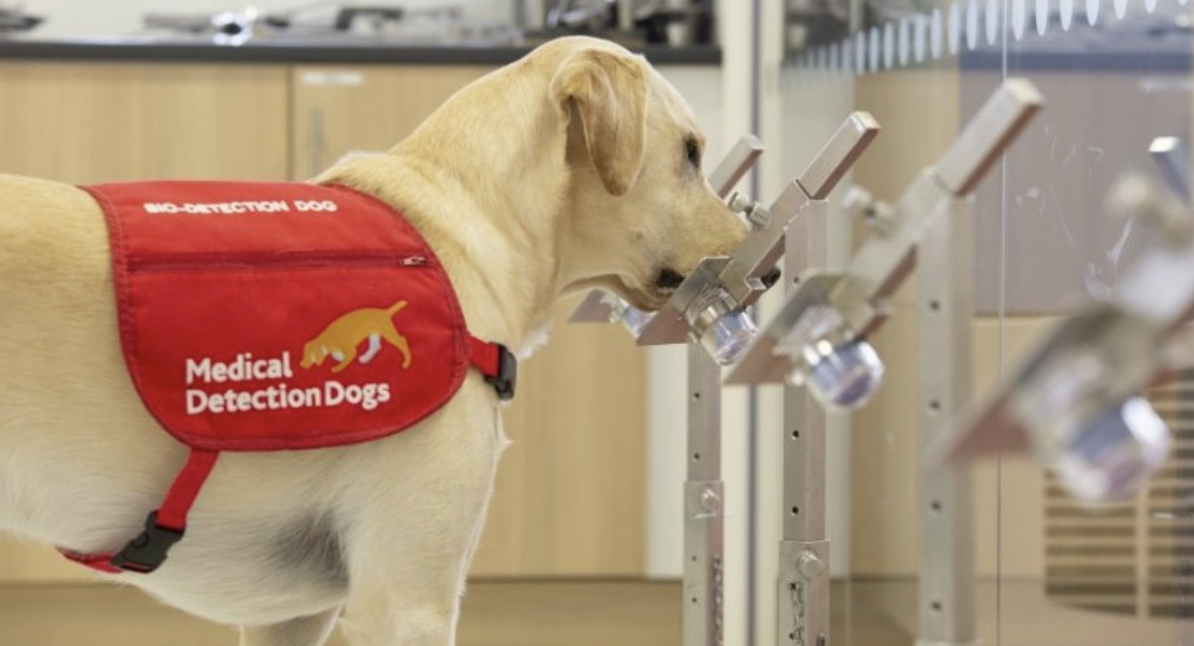
Sniffer dogs trained to identify Covid-19 under a second

In only a matter of months Dogs trained at the London School of Hygiene & Tropical Medicine could accurately detect a person with Covid-19 symptoms from a crowd or at ports of entry, and other large gathering like arenas, and football stadiums.
In the absence of a credible Covid-19 vaccine, man’s best friend Dog will come to the rescue and identify those infected with coronavirus.
The ARCTEC team at the London School of Hygiene & Tropical Medicine, are training Medical detection dogs, a study based on the scientifically proven ability of dogs to act as great biosensors, capable of detecting odours associated with human health, as well as drugs, explosives and food. Dogs can indeed sense small changes in volatile organic compounds (VOCs) which can be produced b y the human body when it is diseased. Dogs have already been trained to diagnose cancer in samples from patients, to alert people with diabetics that their blood sugar is low and detect many other diseases.
In study published in the Lancet Infectious Diseases ( funded by Bill and Melinda Gates Foundation) last year, the dogs demonstrated they can detect the presence of malaria in human odour with over 90 per cent effectively and accurately at an early stage of infection, which is above the World Health Organisation’s standards for a diagnostic test.
Durham University are working on a study to train dogs to identify unique colours associated with coronavirus infection.
The dogs will be able to detect VOCS in people who are infected with COVID-19.The research will involve training six available bio-detection dogs to distinguish between positive and negative odour samples, collected from up to 3, 250 asymptomatic adults who will be independently tested for COVID-19 infection. This will need prove to be a fast, effective and non-invasive diagnostic, with the bio-detection dogs working to detect individuals infected with coronavirus at ports of entry and large gatherings.
The study objectively will rigorously test the method through an intensive training programme, and if successful will deploy dogs within 8-10 weeks after training. Each dog can screen up to 250 people hourly. By placing the dogs in service at airports and other ports of entry to detect infected travellers, and for community surveys in countries worldwide.
Several trained dogs would be able to screen thousands of travellers each day at the airports, identifying individuals who may require an additional test for confirmation or advised to self-isolate. This would allow UK to further re-open borders to international travel, with authorities confident that asymptomatic passengers can be quickly and efficiently identified on arrival. These dogs can also used in theatres, cinemas and sporting venues which could help the entertainment sector.
Helsinki and Dubai airports are already deploying sniffer dogs and could provide a non-invasive way of detecting the coronavirus.
